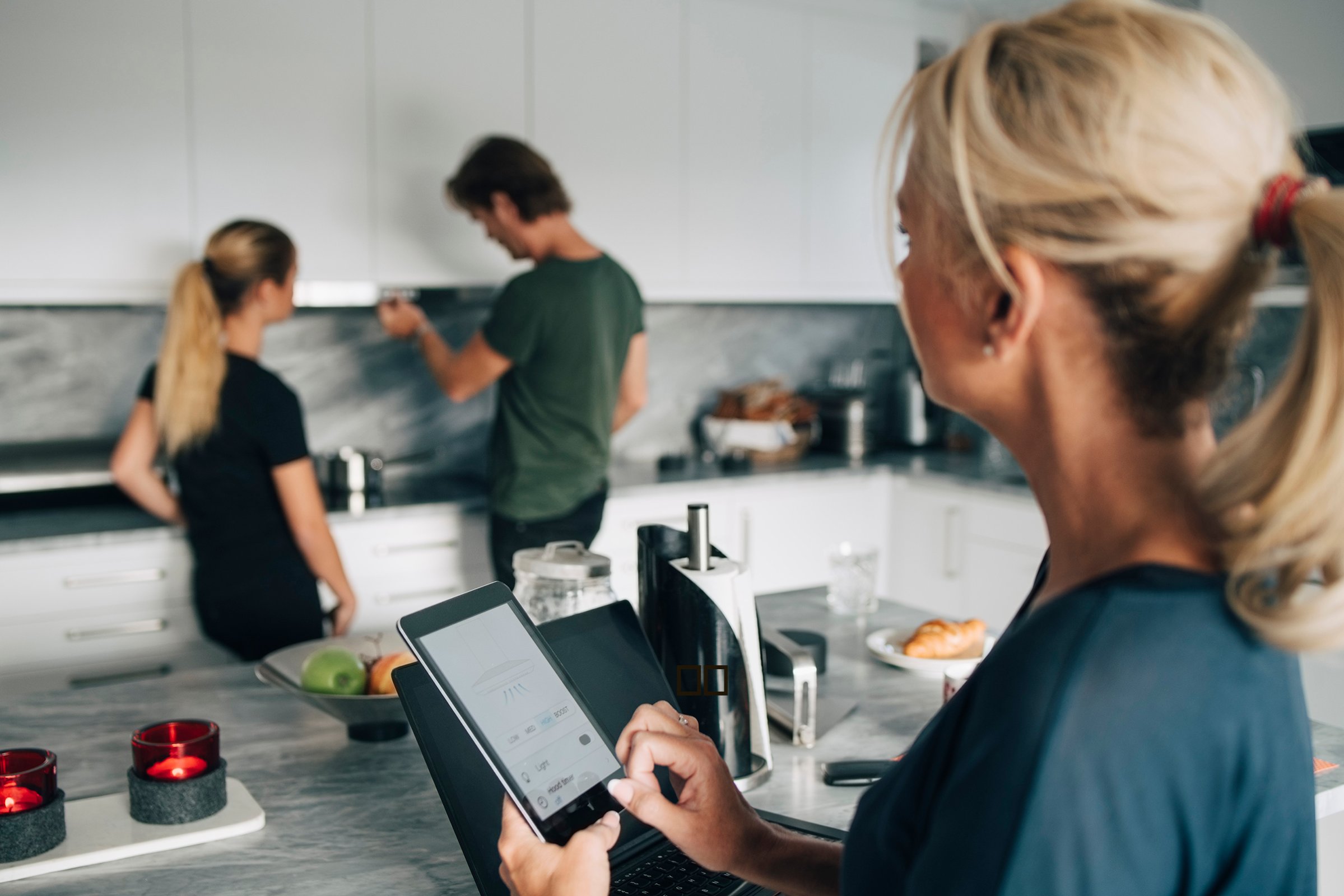
Large-scale surveys tell us that we are raising the best-behaved generation of teenagers on record. Compared to their predecessors, today’s adolescents are less likely to take age-old risks such as smoking cigarettes, trying alcohol, experimenting with illegal drugs or having sex. They’re also more likely to stay home, possibly because they’re connecting with their friends over social media instead of seeing them in person. And yet parents today live in a state of constant anxiety about their teens. Given that our kids are so much tamer than we were as teenagers, why do we worry so much about them?
Maybe it’s because we have a crop of new concerns to keep us up at night, such as sexting, screen addiction and vaping. But perhaps it’s also because we just know too much about our kids. In fact, the long arm of digital technology might explain both the gains in teen safety and the rise of parental anxiety.
If you are a parent raising a teen today, you might know, for instance, that your middle school daughter speaks fluent profanity with her friends online, or that your high school son spent the evening at a known party home instead of hanging out, as promised, with only his most conscientious buddy. You can follow their whereabouts, review their search histories, read their digital conversations and get a feel for how they conduct themselves in the milieu of social media.
It has always been true that normally developing teenagers are irreverent with their peers and sometimes sly, if not downright sneaky, in their dealings with adults. But parents haven’t always been able to find out how sneaky. Back in the day, we were comparatively opaque to our own parents — and they probably slept better for it.
For today’s parents, supervising how teens use technology and perhaps even digitally tracking their locations seems to come with the job of being a responsible caregiver. And yet it’s also clear that keeping close digital tabs on our kids might — to no benefit — cause us to fret about them more and enjoy them less.
One good way to consider the upsides and downsides of our awesome surveillance power is to think about it like a full-body CT scan. Though doctors can use these fine-grained X-rays to check healthy humans for the early signs of disease, the FDA doesn’t recommend it. The reason? Any benefits of early detection are outweighed by the harmful anxiety and invasive tests that would come from discovering a spot on your liver that you never needed to know about.
Examining a young person’s digital activity can be like performing a full-teenager CT scan. Doing so should come with the understanding that we are likely to turn up information that is worrisome, difficult to interpret and quite possibly entirely benign. On top of that, parents can find themselves in a tricky position if they are trying, as they should be, to build trust with their teenagers. It may be hard for kids to feel that they are trusted — and hard for us to trust our kids — when we collect so much information about them.
Recently, an utterly reasonable and mature 16-year-old patient of mine came to one of her appointments aching over a fight with her parents. She explained that her friend group had spontaneously decided to meet up with some guys they had been close with since seventh grade. After catching up in the parking lot at the guys’ all-boys high school, my client headed home to run smack into a hostile third-degree from her folks, who had been tracking her location.
They demanded to know what she was doing at the boys’ school and why she hadn’t told them where she was going. As my client described the showdown, two things were clear: her parents had collected more information than was helpful to have about their daughter, and I needed to reassure them that a crisis rarely arrives all at once. In my experience, real problems are almost always preceded by signs that something is amiss. My patient’s parents knew their daughter well and had seen no smoke, so they could almost certainly trust that the situation wasn’t truly on fire.
How closely should you inspect your teen’s online lives? Unfortunately, there’s no one-size-fits-all answer. Teens who are cautious and responsible, for example, can almost certainly enjoy a longer digital leash than those who have shown themselves to be impulsive on or offline. The tween who mostly uses her phone to peruse Pinterest probably needs less supervision that the one who is obsessed with Snapchat.
Regardless of how closely we decide to monitor our teens’ lives digitally, no amount of surveillance can take the place of having a sturdy, working relationship with them. For that reason, we’ll want to let our teenagers know if we are watching how they use technology or keeping digital tabs on their whereabouts. Otherwise, we won’t be able to have the valuable conversations needed to help us make sense of whatever we happen to discover online.
More Must-Reads From TIME
- The 100 Most Influential People of 2024
- Coco Gauff Is Playing for Herself Now
- Scenes From Pro-Palestinian Encampments Across U.S. Universities
- 6 Compliments That Land Every Time
- If You're Dating Right Now , You're Brave: Column
- The AI That Could Heal a Divided Internet
- Fallout Is a Brilliant Model for the Future of Video Game Adaptations
- Want Weekly Recs on What to Watch, Read, and More? Sign Up for Worth Your Time
Contact us at letters@time.com